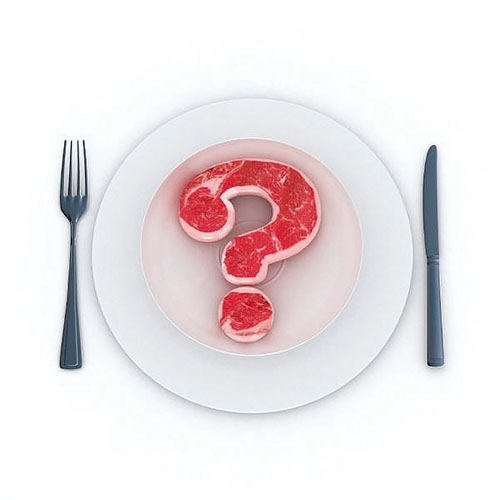
The three weeks before Tisha B’av, the saddest day on the Jewish calendar, are characterized by several restrictions on one’s normal actions. Within those three weeks, the nine days immediately prior to Tisha B’av also have additional prohibitions. These include restrictions against getting haircuts, saying Shehecheyanu (possessing something new), bathing for pleasure, building or remodeling homes, planting trees used for shade or fragrance, and doing laundry. However, one of the most restrictive prohibitions is on eating meat and wine during the Nine Days.
The reason behind most of the prohibitions is to remind us of the mourning of the destruction of the Beis Hamikdash, while meat and wine have an additional reason for being restricted. In the Beis Hamikdash the kohanim used to burn meat and wine on the mizbeach and because the kohanim can no longer sacrifice meat and wine, we do not consume meat or wine either.
Among the few ways a group of people can eat meat or drink wine during the Nine Days is by having a siyyum, a celebration of the completion of a particular portion of learning, or by attending a brit milah. However, according to Rabbi Yirmiyohu Kaganoff, a noted posek and former dayan of the Beit Din of Baltimore—who currently lives in Israel—it is osser (forbidden) to deliberately change your pace of learning in order to have a siyyum during the nine days. A siyyum must be made in honor of finishing a portion of Torah. It is a celebration of learning, and it should not be just for the sake of eating meat or drinking wine.
Other situations people are unsure about concern Shabbat. As some may know, one is allowed to drink wine and eat meat during Shabbat, even during the Nine Days. However, in many young families there are children who eat dinner early, before Shabbat begins. While some may question this during this time period, these children are allowed to eat meat on erev Shabbat for their early dinner, Kaganoff added.
Rabbi Chaim Jachter, who is a respected teacher at TABC, mara d’asra of the Teaneck Sephardic synagogue Sharei Orah, and dayan on the beit din of Elizabeth, gave his rabbinical opinion on some of the other halachic situations. Jachter agrees with Rabbi Kaganoff that children who eat Shabbat dinner early may eat meat before the Shabbat has actually begun. For adults, when preparing the Shabbat food, Jachter says that you are allowed to taste the food, but not swallow it.
Jachter expressed opinions on other situations, such as “Are you allowed to eat food in which meat or wine is unidentifiable?” The laws are strict and you are not allowed this, he said. However, in the situation of a pregnant person or someone who is very ill, while it goes without saying they would not drink wine, they are allowed to eat meat during the Nine Days.
Rabbi Jachter’s further opinions are different for whether one is Ashkenazic or Sephardic. When it comes to eating Shabbat leftovers; Sephardim say that you can eat the food, while the Ashkenazim do not allow it. What to do with grape juice for havdalah? The Ashkenazim say that you should give the juice to a child, although Sephardim say that the person making havdalah can drink the juice.
Although initially the Beis Hamikdash was set ablaze on the Ninth of Av, much of the actual destruction happened on the tenth. Because of this, Ashkenazim keep the restrictions of the Nine Days until midday on the tenth of Av, while the Sephardim keep the restrictions the entire day.
Benjy Kleiner is a JLBC intern, an incoming junior at TABC, and a longtime volunteer for Black Box Studios.
By Benjy Kleiner









